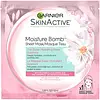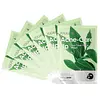What's inside
What's inside
 Key Ingredients
Key Ingredients

 Benefits
Benefits

 Concerns
Concerns

 Ingredients Side-by-side
Ingredients Side-by-side

Water
Skin ConditioningPropylene Glycol
HumectantGlycerin
HumectantP-Anisic Acid
MaskingBenzyl Alcohol
PerfumingBenzyl Benzoate
AntimicrobialChamomilla Recutita Flower Extract
MaskingDipotassium Glycyrrhizate
HumectantGlyceryl Acrylate/Acrylic Acid Copolymer
HumectantHydrogenated Starch Hydrolysate
HumectantHydroxyethylcellulose
Emulsion StabilisingMannose
HumectantMethylparaben
PreservativeParfum
MaskingPEG-40 Hydrogenated Castor Oil
EmulsifyingPhenoxyethanol
PreservativePotassium Hydroxide
BufferingPotassium Sorbate
PreservativePropylparaben
PreservativePvm/Ma Copolymer
Emulsion StabilisingSodium Hyaluronate
HumectantSorbic Acid
PreservativeXanthan Gum
EmulsifyingWater, Propylene Glycol, Glycerin, P-Anisic Acid, Benzyl Alcohol, Benzyl Benzoate, Chamomilla Recutita Flower Extract, Dipotassium Glycyrrhizate, Glyceryl Acrylate/Acrylic Acid Copolymer, Hydrogenated Starch Hydrolysate, Hydroxyethylcellulose, Mannose, Methylparaben, Parfum, PEG-40 Hydrogenated Castor Oil, Phenoxyethanol, Potassium Hydroxide, Potassium Sorbate, Propylparaben, Pvm/Ma Copolymer, Sodium Hyaluronate, Sorbic Acid, Xanthan Gum
Water
Skin ConditioningGlycerin
HumectantPropylene Glycol
HumectantMelaleuca Alternifolia Leaf Oil
AntioxidantO-Cymen-5-Ol
AntimicrobialSophora Flavescens Root Extract
AntioxidantScutellaria Baicalensis Root Extract
AstringentHalimeda Opuntia Extract
EmollientAvena Sativa Kernel Extract
AbrasiveSodium Hyaluronate
HumectantSclerotium Gum
Emulsion StabilisingHydroxyethylcellulose
Emulsion StabilisingCarbomer
Emulsion StabilisingSodium Polyacrylate
AbsorbentTriethanolamine
BufferingMethylparaben
PreservativeCaprylhydroxamic Acid
Ethylhexylglycerin
Skin ConditioningPEG-40 Hydrogenated Castor Oil
EmulsifyingWater, Glycerin, Propylene Glycol, Melaleuca Alternifolia Leaf Oil, O-Cymen-5-Ol, Sophora Flavescens Root Extract, Scutellaria Baicalensis Root Extract, Halimeda Opuntia Extract, Avena Sativa Kernel Extract, Sodium Hyaluronate, Sclerotium Gum, Hydroxyethylcellulose, Carbomer, Sodium Polyacrylate, Triethanolamine, Methylparaben, Caprylhydroxamic Acid, Ethylhexylglycerin, PEG-40 Hydrogenated Castor Oil
 Reviews
Reviews

Ingredients Explained
These ingredients are found in both products.
Ingredients higher up in an ingredient list are typically present in a larger amount.
Glycerin is already naturally found in your skin. It helps moisturize and protect your skin.
A study from 2016 found glycerin to be more effective as a humectant than AHAs and hyaluronic acid.
As a humectant, it helps the skin stay hydrated by pulling moisture to your skin. The low molecular weight of glycerin allows it to pull moisture into the deeper layers of your skin.
Hydrated skin improves your skin barrier; Your skin barrier helps protect against irritants and bacteria.
Glycerin has also been found to have antimicrobial and antiviral properties. Due to these properties, glycerin is often used in wound and burn treatments.
In cosmetics, glycerin is usually derived from plants such as soybean or palm. However, it can also be sourced from animals, such as tallow or animal fat.
This ingredient is organic, colorless, odorless, and non-toxic.
Glycerin is the name for this ingredient in American English. British English uses Glycerol/Glycerine.
Learn more about GlycerinHydroxyethylcellulose is used to improve the texture of products. It is created from a chemical reaction involving ethylene oxide and alkali-cellulose. Cellulose is a sugar found in plant cell walls and help give plants structure.
This ingredient helps stabilize products by preventing ingredients from separating. It can also help thicken the texture of a product.
This ingredient can also be found in pill medicines to help our bodies digest other ingredients.
Learn more about HydroxyethylcelluloseMethylparaben is a preservative and is a paraben. It is used to prevent the growth of fungus, mold, and other harmful bacteria. Parabens are chemicals used as preservatives in both cosmetics and food.
Methylparaben can be synthetically created. It can also be found naturally in some fruits, such as blueberries.
Oftentimes, Methylparaben is combined with other parabens to help increase the shelf life.
The safety of Methylparaben is currently being studied. While ongoing studies are looking into the safety of parabens, the results have been very mixed. Some studies have not found Methylparaben to be harmful.
Learn more about MethylparabenPeg-40 Hydrogenated Castor Oil is derived from castor oil and polyethylene glycol (PEG). It is used as a emollient and emulsifier.
As an emulsifier, it helps prevent ingredients from separating. It also helps make the other ingredients more soluble; it is often used to solubilize fragrances. This increases spreadability and elongates shelf life in a product.
Emollients help soothe and soften the skin. They do this by creating a protective film on your skin. This barrier helps trap moisture and keeps your skin hydrated. Emollients may be effective at treating dry or itchy skin.
This ingredient may or may not be vegan, depending on the source.
Peg-40 Hydrogenated Castor Oil may not be fungal-acne safe. We recommend speaking with a professional if you have any questions or concerns.
Learn more about PEG-40 Hydrogenated Castor OilPropylene Glycol is an odorless, colorless liquid. As a humectant, it helps skin retain moisture. It also aids in delivering active ingredients.
Another role of this ingredient is preventing a product from melting or freezing. Propylene glycol also adds antimicrobrial properties to a product, elongating product lifespan.
This ingredient is considered an organic alcohol and commonly added into both cosmetics and foods.
Those with sensitive skin or conditions may develop a rash when using this ingredient.
Learn more about Propylene GlycolSodium Hyaluronate is hyaluronic acid's salt form. It is commonly derived from the sodium salt of hyaluronic acid.
Like hyaluronic acid, it is great at holding water and acts as a humectant. This makes it a great skin hydrating ingredient.
Sodium Hyaluronate is naturally occurring in our bodies and is mostly found in eye fluid and joints.
These are some other common types of Hyaluronic Acid:
Learn more about Sodium HyaluronateWater. It's the most common cosmetic ingredient of all. You'll usually see it at the top of ingredient lists, meaning that it makes up the largest part of the product.
So why is it so popular? Water most often acts as a solvent - this means that it helps dissolve other ingredients into the formulation.
You'll also recognize water as that liquid we all need to stay alive. If you see this, drink a glass of water. Stay hydrated!
Learn more about Water